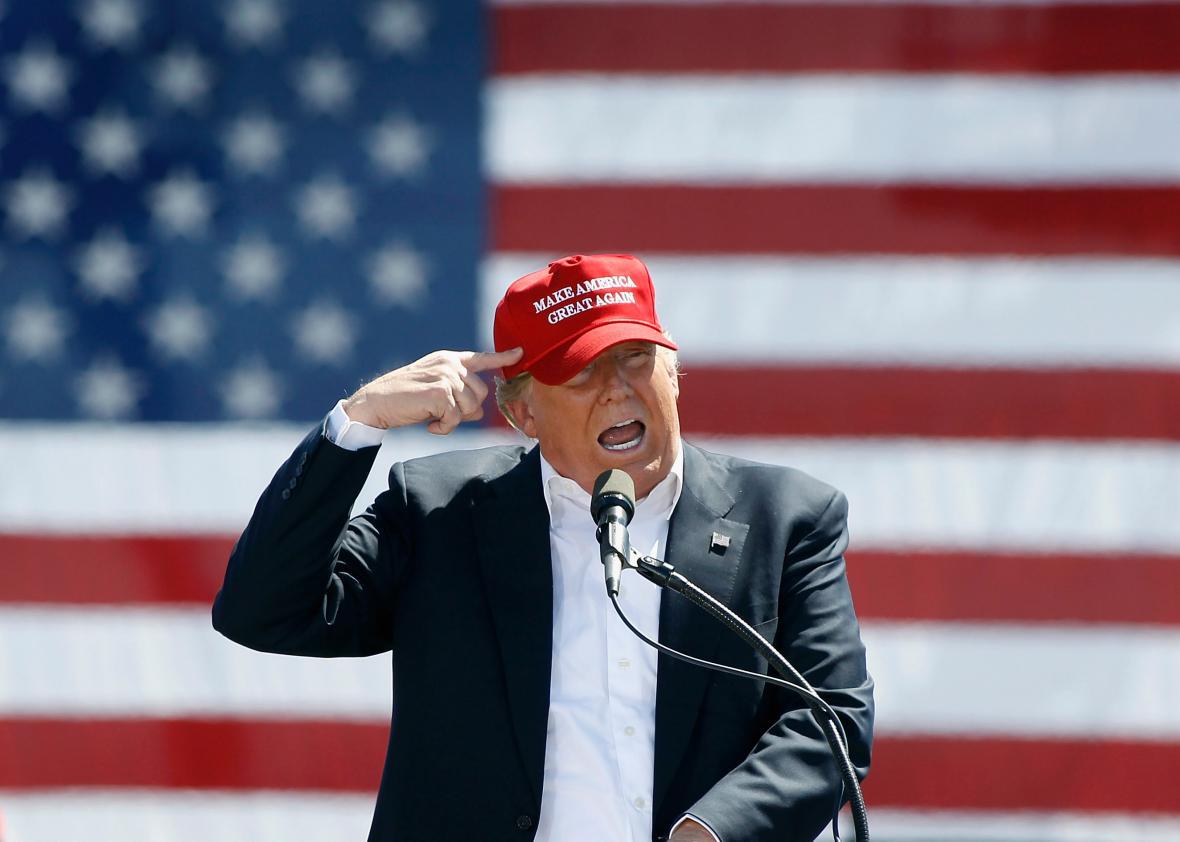Donald Trump on Tuesday removed any remaining doubt that the much-hyped GOP “loyalty pledge” he and his fellow Republican rivals signed last fall is essentially meaningless. “No, I don’t anymore,” the celebrity billionaire said at a CNN town hall when asked whether he’d still support the Republican nominee regardless of who it is. “We’ll have to see who it is.”
Ted Cruz and John Kasich also both backed away from the pledge—though, tellingly, neither was willing to go quite as far as Trump when it came to saying exactly what they meant. “I’m not in the habit of supporting someone who attacks my wife and attacks my family,” Cruz said when CNN’s Anderson Cooper asked him if he would support Trump if he is the party’s nominee. (To his credit Cooper attempted two follow-ups to pin the Texan down further, but Cruz was unwilling to go past his previous dodge that the question is irrelevant because “Donald is not going to be the nominee.”) Kasich, meanwhile, said he’d need to “see what happens,” especially if the nominee is someone who “is really hurting the country and dividing the country”—though he also refused to answer a follow-up about whether Trump would fit that definition.
It was Trump’s remarks, though, that stood out—particularly since he is far better-positioned to become the nominee than either of his two remaining rivals. While it’s long been obvious that Trump would freak out (to put it mildly) in the event he is denied the nomination at a contested convention this summer, the party-unity charade played to his advantage. The pledge was originally written to bind him to the party, but it instead bound the party to him. It helped legitimize his campaign in the eyes of the media and many voters last year, and it’s why the #NeverTrump movement crumbled on the debate stage this year. It’s difficult to make the argument that Trump is unqualified to be president when in the next breath you are saying you will help him become president.
Trump’s safe play, then, would have been to preserve the status quo that got him where he is today—as the clear favorite to arrive in Cleveland this summer with the most delegates to his name. The Donald, though, is rarely one for the safe play, as the past year has proved time and time again. “I don’t want his support; I don’t need his support,” Trump told Cooper when asked about Cruz’s comments. Asked why he was revoking his pledge, Trump pointed to the Republican Party and “the establishment,” which he said are treating him “very unfairly.”
Trump’s been touting his treat-me-fairly-or-else escape clause since he signed the pledge this past September, so what finally changed? One answer may be that Trump knows that he’s already squeezed every last drop of “leverage” out of his third-party threat as he possibly can. Filing deadlines and “sore loser” laws would block him from getting on the November ballot as an independent in several states, making a serious third-party bid somewhere between impractical and impossible.
Revoking the pledge now comes with some risks, yes, but standing behind it at a time when his rivals are openly plotting a convention coup would as well. Tearing it up now, meanwhile, offers new rewards. Trump is daring Cruz and Kasich to follow his lead. If they do, Trump supporters will see it as further proof that the party is trying to steal the nomination away from a man who has won the most votes, most states, and most delegates in the GOP race. And if Cruz and Kasich don’t walk away? Trump, then, will gain something even more valuable: proof that for all their harsh words, his rivals will ultimately fall in line with Republican voters—no loyalty pledge necessary.
Elsewhere in Slate: An Extremely Detailed Guide to What the Heck Might Happen at a GOP Contested Convention
